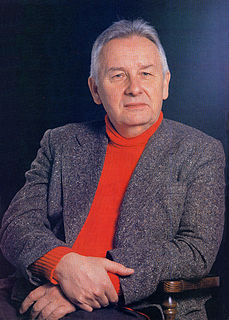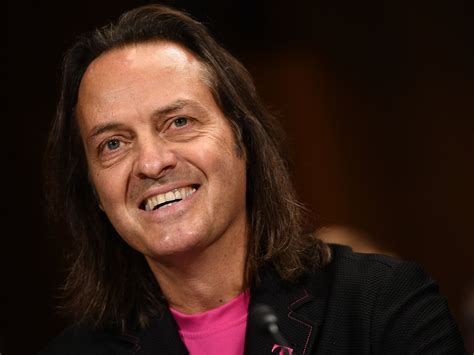A Quote by Maggie Stiefvater
Do you know how some people can do anything?” “What do you mean?” “I mean, you tell them to write a tune, they give you a symphony right there. You tell them to write a book, they write you a novel in a day. You tell them to move a spoon without touching it, they move it. If they want something, they make it happen. Miracles, almost.
Related Quotes
I do not choose my listeners. What I mean is, I never write for my listeners. I think about my audience, but I am not writing for them. I have something to tell them, but the audience must also put a certain effort into it. But I never wrote for an audience and never will write for one, because you have to give the listener something and he has to make an effort in order to understand certain things.
Someone wanted me to write a profile for ESPN about the commissioner of baseball, and I said, "He's just some suit! Some Republican. No!" I mean if you want me to write about baseball, boxing or football, I'll write about those things because I watch them, I think about them a lot and I like them. But I don't want to write about Barry Bonds.
What do you do when it seems as if people want to stay in their pain. They have a story to tell and they tell you every chance they get. Well, believe it or not, they may like where they are. Our job is to leave them there. You can point the way out of pain, but you cannot force them to get out. You can support the move beyond their limitations, but you cannot make the move for them.
With the artists, I don't teach, I coach. I can't tell them how to make art. I tell them to make more art. I tell them to get up early and stay up late. I tell them not to quit. I tell them if somebody else is already making their work. My job is to be current with the discourse and not be an asshole. That's all I wanted in a professor.
It's kind of fun at my age to go back and talk to business-school people. I tell them, "I can summarize everything you need to know to lead a major corporation. Are you prepared to write this down?" And then they get all ready. I tell them I can summarize how I succeed as a leader: Listen to your employees, listen to your customers, shut the f - - up, and do what they tell you.
If you have someone in your life that you are grateful for - someone to whom you want to write another heartfelt, slanted, misspelled thank you note - do it. Tell them they made you feel loved and supported. That they made you feel like you belonged somewhere and that you were not a freak. Tell them all of that. Tell them today.
A lot of the people involved in the media are very serious, honest people, and they will tell you, and I think they are right, that they are not being forced to write anything... What they don't tell you, and are maybe unaware of, is that they are allowed to write freely because their beliefs conform to the... standard doctrinal system, and then, yes, they are allowed to write freely and are not coerced.
You have to write a book because you believe it has helped you, because you believe it has helped others personally and you are dying to share with it others because you know it will add value to their lives. You write it for them like a gift. You don't want anything from them. You don't want them to do anything for you. You don't even care if they all share the book with their friends, they don't all have to buy them. You're just dying to share this idea with people. Your challenge is to write it in a way that is compelling, enjoyable to read so that they will get the idea.



































